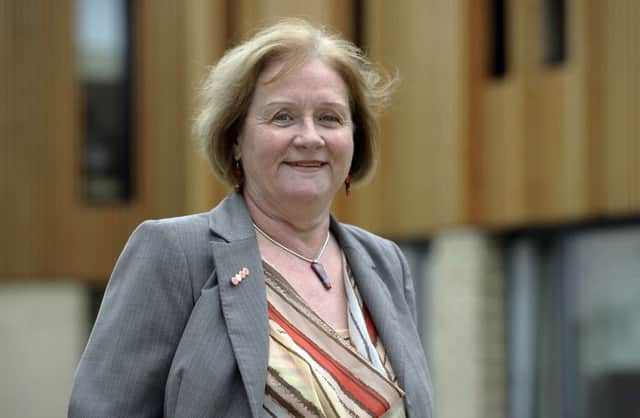Innovative business models helping to build communities


Glasgow-based WEvolution has pioneered the creation of self-reliant groups in Scotland, helping 250 people through a business model imported from in India.
The charity brings together small groups of people who all contribute a small amount of money each week to get a business idea off the ground. Once a business is underway the group can apply for a loan to help their enterprise grow.
Advertisement
Hide AdAdvertisement
Hide AdSome of the self-reliant groups started out using skills they already had, while others have learned new crafts. So far the groups have created enterprises that involve sewing, photography, woodworking and laundry. Now plans are underway to train people in bike repair, plastering and electrical wiring.
Scottish Local Government Minister Kevin Stewart said: “We want to see a Scotland in which everyone can play a full part in society, with empowered communities able to shape their individual and collective futures. I’m delighted to be able to confirm this funding for WEVolution – a fantastic organisation which helps support some of Scotland’s communities with the greatest potential to change to follow their dreams and grow their own businesses. It is a great example of our policies in action – which are giving people more control over decisions that affect them, making it easier for local people to develop their own economies, wellbeing and environments.”
Noel Mathias, WEvolution’s managing director, said the new funds will allow it to work with an additional 150 people.
He added: “I am grateful to the Scottish Government which has stood by us as we work alongside people, trusting they will benefit the community and the country in the long run. This funding will help us grow the movement and take it to a lot more people in the regions where we work: Glasgow, Inverclyde, Renfrewshire and Dundee.”
The announcement came at a WEvolution gathering in Glasgow which attracted attendees from England, the Netherlands, Wales and the USA, as well as from across Scotland. Interest in WEvolution has been so strong that the charity is already working with groups in Manchester, Pontypridd and Rotterdam.
Mr Mathias added: “WEvolution started from a Church of Scotland group who visited India, seeking new ideas to help our most disadvantaged communities. Thanks to the support of the Church, we have gone from strength to strength and are now an independent charity.
“WEvolution now has plans to scale up significantly across the the UK. We have just learned that we will be getting support from the International Centre for Social Fundraising, which will allow us to build our Self Reliant Group model into a social franchise that people can use across the UK.”
Jyoti Mhapsekar, who pioneered the self-reliant group model in Mumbai, India, bringing together women who make their living from rubbish dumps to negotiate waste management contracts, said: “I’m honoured and I feel very happy that WEvolution has been inspired by the courage and the hard work of our women.
Advertisement
Hide AdAdvertisement
Hide Ad“Our women are some of the poorest women in the city. We call them rag pickers. But even though they are so poor, they smile. They smile despite their struggles.
“The model will vary in different places because the circumstances are different.”
